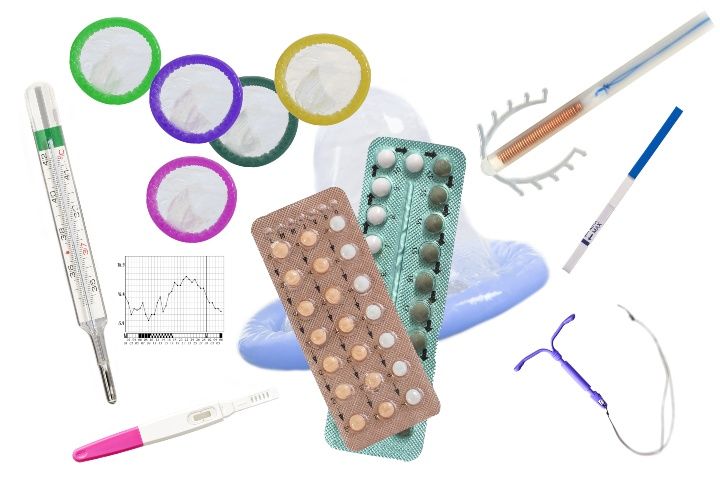September 26 is World Contraception Day, a day recognised to improve awareness of all contraceptive methods available, and enable people to make informed choices on their sexual and reproductive health.
To facilitate a conversation on this key topic related to women’s health, we invited Dr Tanaya Narendra, Embryologist and Scientist, to host an Ask Me Anything session on Malini’s Girl Tribe.
Dr Tanaya addressed all questions related to the types of contraceptives, hormonal contraception, how to select the best one, side-effects of using certain contraceptives, condoms and their necessity, to use flavoured condoms or not, intrauterine devices (IUDs), contraceptives and their role in regulating periods, emergency contraceptives—when and how often can one take them, non-contraceptive uses of contraceptives, busted some common myths, and more! Scroll down to know the answers to some frequently asked questions about contraception.
Q. How to get started with contraception and how to deal with side-effects that may arise?
There is such a huge variety of contraceptives available. The choice of your contraception depends on very personal factors like your medical history, age, children, and how long you want to use the contraception for. How about you pop over to your gynaecologist’s office who can guide you on what will fit you best? Since there are so many choices, the side effects are also different for each choice!
Q. What are female contraceptive devices?
For female contraception, there are many different options available. There is hormonal pills, injectibles, implants, and intrauterine devices. Permanent methods include getting surgery.
Q. What are non-hormonal oral contraceptives?
Currently, there are no non-hormonal oral contraceptives available. Bummer, I know. There are lots of non-hormonal contraceptives available, but they aren’t taken orally.
Q. Which is the safest oral contraceptive, especially for women in their 20s?
So, the decision to choose the best contraceptive method is very personal—it’s important to consider the age and other health factors like migraines, smoking history, etc. when choosing a contraceptive. If you would like a pill-based hormonal method, what I have found to be the friendliest method is to use low dose hormonal pills. You can speak to your doctor about medications like Yaz, which contain very low doses of the hormones, so there are minimum side-effects!
The reason why condoms are most heavily promoted is that they are cheap, immediately reversible, easy to use, and have no hormonal effects. It’s also great for couples where they have been sexually active with other partners (in the past or present) but haven’t had an STI test done yet. Condoms are the ONLY contraceptive method that can prevent STIs. Great for young, non-monogamous couples!
It’s best to speak to your doctor to see what‘s your ideal contraceptive option—pills, injectibles, implants, IUDs, etc.
Q. Should we really avoid commercially sold condoms which have a lot of additives like flavour and fragrance, and move towards more clean ones?
The flavours and fragrances added in commercial condoms are safe to ingest, so it’s okay to use them. The reason why condoms are flavoured is *drumroll* because condoms are also supposed to be used for oral sex! A very common way of STIs spreading is through oral sex, which can be easily prevented with condoms. Now, I don’t know if you’ve ever tasted a non-flavoured condom, but let me tell you, they do not taste pleasant, LOL.
Q. I’ve heard that one of the non-contraceptive uses of contraceptives is that they clear up acne. Is this true?
It’s very important to recognise the non-contraceptive benefits that come with hormonal pills. It’s helpful for things like acne, irregular periods, painful periods, very heavy periods, and endometriosis (a very painful condition of the periods). Some menstruators even have issues like PMDD, which can be a debilitating mental health condition. It’s like PMS, but with significantly worse symptoms of low mood and depression. Did you know that oral contraceptive pills also comes with an added anti-cancer benefit! OCPs lead to a reduced risk of ovarian and endometrial cancer.
We need to also remember that everyone is not heterosexual, so their needs for contraceptives might be different—for managing painful and heavy periods (all menstruators!), for preventing sexually transmitted infections (all sexually active people, whatever their sexual orientation may be), or for managing hormones (like acne, PCOS, etc).
Q. I am 25 years old. Due to hormonal acne, my dermatologist has prescribed me a contraceptive pill which I have been using for the past 12 months. My acne has totally disappeared. Should I continue using them?
It’s perfectly okay to continue since you’re not facing any side effects right now. There is also a possibility that your acne might recur once you stop the medication since it’s hormonal acne.
What are your most pressing concerns when it comes to choosing the right contraception method? Please share it with us in the comments below!
Join Malini’s Girl Tribe on Facebook to be a part of more such conversations!

